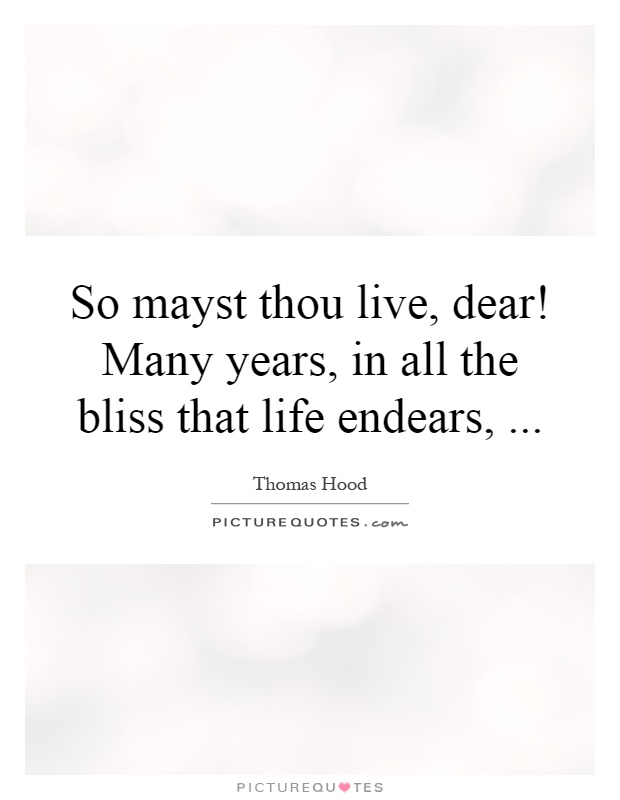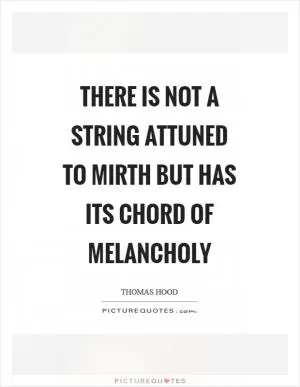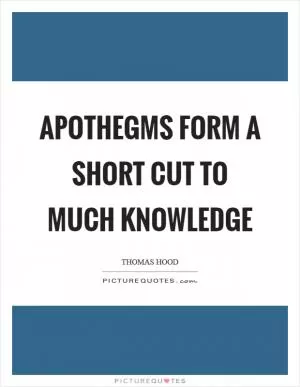So mayst thou live, dear! Many years, in all the bliss that life endears,

So mayst thou live, dear! Many years, in all the bliss that life endears,
Thomas Hood was a renowned English poet and humorist who lived during the early 19th century. Known for his wit and clever wordplay, Hood's works often explored themes of love, loss, and the human condition. One of his most famous poems, "To My Daughter," contains the lines: "So mayst thou live, dear! Many years, in all the bliss that life endears."These lines encapsulate the heartfelt wishes of a parent for their child to live a long and happy life filled with joy and love. In the context of Thomas Hood's own life, these words take on a deeper meaning. Hood himself faced many challenges and hardships throughout his life, including financial struggles and poor health. Despite these difficulties, he remained optimistic and continued to find joy in his writing and his relationships with loved ones.
The sentiment expressed in these lines reflects Hood's own desire for his daughter to experience the beauty and happiness that life has to offer. It is a wish for her to find fulfillment and contentment in all aspects of her life, to cherish the moments of joy and to overcome the inevitable trials and tribulations that come her way.
Hood's words also serve as a reminder of the fleeting nature of life and the importance of treasuring each moment. In a world filled with uncertainty and challenges, it is easy to lose sight of the simple pleasures and joys that make life worth living. Hood's wish for his daughter to live in bliss serves as a poignant reminder to appreciate the beauty and wonder that surrounds us each day.
Overall, the lines "So mayst thou live, dear! Many years, in all the bliss that life endears" encapsulate the enduring hope and love that a parent holds for their child. In the context of Thomas Hood's own life and work, these words serve as a testament to the power of love, resilience, and the enduring beauty of the human spirit.












 Friendship Quotes
Friendship Quotes Love Quotes
Love Quotes Life Quotes
Life Quotes Funny Quotes
Funny Quotes Motivational Quotes
Motivational Quotes Inspirational Quotes
Inspirational Quotes